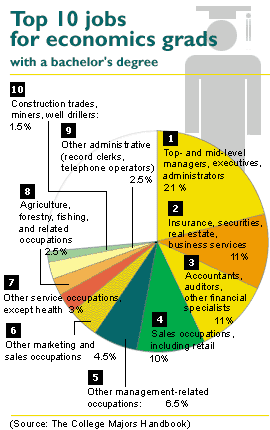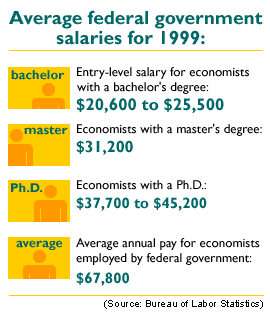NEW YORK (CNNfn) - Chris Pape has no illusions. He knows full well where his strengths and weaknesses lie.
"I'm a terrible math student," the 23-year-old Tufts University grad admitted. "My love has always been the creative side. I would have gone into English or advertising or something, but that's always come easy to me and I wanted a technical background. I thought that was important coming out of school to make the job search easier."
Pape chose economics and so far, he has no regrets.
Rather than joining his classmates, most of whom flocked to brokerage houses, insurance agencies and market research firms, Pape teamed with
Chris Christoudias, a college buddy and computer engineer, to create Digital Bungalow last year.
The Web design firm provides both back-end computer programming services as well as online advertising, giving Pape the chance to flex his creative muscles and utilize his educational background at the same time. Since landing a few national clients, they've hired nearly a dozen employees and are poised to produce revenues this year of $1 million.
"It really has made me more well-rounded," he said. "It was difficult, but it was definitely worth it."
Depth of field
George Norman, professor of entrepreneurship and business economics at Tufts University, said Pape's story epitomizes the potential for econ grads.
"An economics degree is really so flexible," he said. "A number of our grads are now working for New York finance houses and some ended up in the business side of advertising. Others went into market research and consultancy. The market is very healthy."
To be sure, the job market for most college grads is strong. But Norman contends economics majors "tend to do particularly well because they have a nice combination of technical skills and the ability to convert technical argument into something intuitive. They have excellent communication skills."
 Economists, as defined by the Labor Department, study how society distributes scarce resources such as land, labor, raw materials, and machinery to produce goods and services. They conduct research, collect and analyze data, monitor economic trends, and develop forecasts. Research projects often include such things as energy costs, inflation, interest rates, imports, and employment levels. Economists, as defined by the Labor Department, study how society distributes scarce resources such as land, labor, raw materials, and machinery to produce goods and services. They conduct research, collect and analyze data, monitor economic trends, and develop forecasts. Research projects often include such things as energy costs, inflation, interest rates, imports, and employment levels.
By trade, economists are closely aligned with marketing research analysts, except that professionals in that field tend to be more focused on potential sales of a product or service.
The Bureau of Labor Statistics (BLS), a division of the Labor Department, reports that economists and marketing research analysts together held about 70,000 jobs in 1998, the most recent year for which data are available. Many combine a full-time job with part-time or consulting works.
In its Occupational Outlook guide, the Bureau also notes that private companies provided 4 out of 5 jobs for salaried workers, particularly economic and marketing research firms, management consulting firms, banks, securities and commodities brokers, and computer and data processing companies.
Other data from "The College Majors Handbook," published by JIST Networks Inc., reveal that many economics majors in the private sector also end up in the fields of finance, accounting and auditing, insurance and real estate.
The rest either find jobs in academia with various colleges and universities or they work for the Departments of Labor, Agriculture, or Commerce - the largest federal employers of economists.
(Click here for the BLS Occupational Outlook Handbook.)
"You hear a lot about agricultural economy these days, which is being buoyed by economic prosperity of the nation," said Dan Bernardo, professor and department head for the agriculture economics program at Kansas State University. "Jobs for econ grads in agriculture have been pretty outstanding, for those with a PhD and those with a bachelor's degree alike."
And it's not just Midwestern grain companies doing the hiring, he notes. Those who focus their economics degree on agriculture also find high level job opportunities at national grocery stores as product buyers, and other retail outlets.
Visit CNNfn's Career page regularly to read "Working your Degree," a new column that highlights job opportunities for a different college major each week. See the links at the bottom of this page for profiles on the computer science, physical therapy, history and teaching professions.
Looking ahead
Job opportunities for economists are projected to grow between 10 percent and 20 percent through 2008, on par with the national average for all occupations, the BLS reports. At the same time, slower employment growth of less than 10 percent is expected among economists in state and local governments.
Competition is fierce for positions requiring only a bachelor's degree, and the Bureau warns that "additional education or superior academic performance is likely to be required" to actually land the job.
At the same time, however, undergrad degree holders who may have a hard time finding work as an economist or marketing analyst, may be well positioned for a starting position as a research assistant, administrative or management trainee, marketing interviewer or professional sales jobs."
Graduate training, the Bureau reports, is required for many private sector economists and it's critical for advancement to higher-level positions.
"Those considering careers as economists or marketing research analysts should be able to pay attention to details because much time is spent on precise data analysis," the Occupational Outlook advises. "Patience and persistence are necessary qualities since economists and marketing research analysts must spend long hours on independent study and problem solving."
It goes on to say that some of the traditional jobs - though limited in number - available to undergrads include management and sales trainees, and administrative assistants. Teach high school economics is also an option, assuming state certification requirements are met.
If you're hunting for an economics job, there are a few Web sites you may want to check out. The first is Inomics, a site catering exclusively to economists, with job openings, conference notices and a search engine for economic information. Another site is economicssearch.com, also offering a job bank, study guides, research tools and networking boards.
Paycheck check-up
The median annual earnings of economists and marketing research analysts were $48,330 in 1998, according to BLS data. The lowest 10 percent earned less than $26,540 and the highest 10 percent earned more than $94,810 a year.
In the federal government, entry-level pay was a bit lower, coming in at  $20,600 to $25,500 in 1999 for grads with an economics bachelor's degree. $20,600 to $25,500 in 1999 for grads with an economics bachelor's degree.
What it's like
If you're not sure whether economics is right for you, here's a peak at what you can expect in the field.
The BLS reports that economists "tend to have structured work schedules, often working alone, writing reports, preparing statistical charts and using computers. At times, however, they work in research teams. The job itself, can be relatively high-pressure, with deadlines and tight schedules that may require overtime."
And, oh yeah, don't be surprised if you spend half your life on a plane. Many research analysts and consultants in the field travel often for meetings and conferences.
As for Pape, he said he's still enjoying the ride.
"We're doing pretty well," he said. "It's exciting. At first I was working 80-to-100 hours a week, but now we've got help so it's lightening up. I love it." 
-- Click here to send e-mail to Shelly K. Schwartz
|

